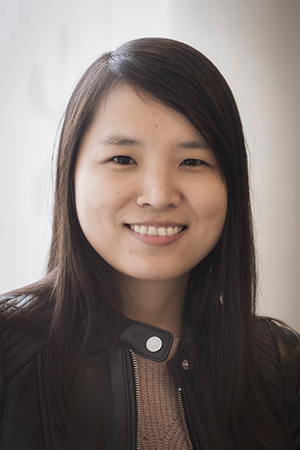
Yun Li
Biography
Dr. Yun Li is a neurobiologist interested in understanding human brain development and diseases. She completed graduate training at the University of Texas Southwestern Medical Center, and postdoctoral training at the Whitehead Institute and MIT. In 2018, Dr. Li established her independent lab in Toronto.
She is currently a Senior Scientist at SickKids Research Institute, an Assistant Professor at the University of Toronto, and a Medicine by Design Investigator. Her laboratory studies how the human brain forms, what makes it unique from those of other species, and how disorders like autism impact its development and function. Her group takes the experimental approach of modeling human brain development in the dish, utilizing a combination of pluripotent stem cell technology, CRISPR/Cas9-mediated genome engineering, and 3D brain organoids.
Research
The Li Lab is interested in understanding how the human brain forms, what makes it unique from that of other species, and how disorders like autism impact its development and function. We take the experimental approach of modeling human brain development in the dish, utilizing a combination of pluripotent stem cell technology, genome editing, and three-dimensional organoid cultures. Our current research focuses on investigating the emergence of human-specific neural cell types and cortical features, and studying the molecular mechanisms underlying autism.
Education and experience
- 2025–Present: Senior Scientist, SickKids Research Institute, Toronto, ON, Canada.
- 2018–2025: Scientist, SickKids Research Institute, Toronto, ON, Canada.
- 2018–Present: Assistant Professor, University of Toronto, Toronto, ON, Canada.
- 2009–2017: Post-doctoral Fellow, Whitehead Institute, Massachusetts Institute of Technology, Boston, MA, USA.
- 2002–2008: PhD, University of Texas Southwestern Medical Center, Dallas, TX, USA.
Achievements
- 2021: Organizing Committee Member, International Conference on Stem Cell Engineering
- 2020: Organizing Committee Member, Till & McCulloch Meetings
- 2020: Young Investigator Award, Brain & Behavior Research Foundation
- 2019: Advisory Editorial Board Member, Disease Models & Mechanisms
- 2018: Medicine by Design Investigator, University of Toronto
- 2016: Bridge to Independence Award, Simons Foundation
- 2012: Young Investigator Award, NARSAD
- 2009: Dean’s Award, University of Texas Southwestern Medical Center
- 2008: New Investigator Award, American for Society for Neurochemistry
Publications
- *Dhaliwal NK, *Weng OY, Dong X, Bhattacharya A, Ahmed M, Nishimura H, Choi WWY, Aggarwal A, Luikart BW, Shu Q, Li X, Wilson MD, Moffat J, Wang LY, Muffat J, and Li Y (2024) Synergistic hyperactivation of both mTORC1 and mTORC2 underlies the neural abnormalities of PTEN-deficient human neurons and brain organoids. Cell Reports. 43(5): 114173.
- Wang WX, Douglas TR, Zhang H, Bhattacharya A, Rothenbroker M, Tang W, Sun Y, Jia Z, Muffat J, Li Y, and Chou LYT (2024) Universal, label-free, single-molecule visualization of DNA origami nanodevices across biological samples using origamiFISH. Nature Nanotechnology. 19(1): 58-69.
- *Dhaliwal NK, *Choi WWY, Muffat J, and Li Y (2021) Modeling PTEN overexpression induced microcephaly in human brain organoids. Molecular Brain 14(1): 131.
- Tian A, Muffat J, and Li Y (2020) Studying human neurodevelopment and diseases using 3D brain organoids. Journal of Neuroscience 40(6): 1186-1193.
- *Li Y, *Muffat J, Omer A, Bosch I, Lancaster M, Sur M, Gehrke L, Knoblich J, and Jaenisch R (2017) Induction of expansion and folding in human cerebral organoids. Cell Stem Cell 20(3): 385-396.
- 2021–2023: Brain & Behavior Research Foundation
- 2020–2026: Natural Sciences and Engineering Research Council of Canada
- 2020–2022: Stem Cell Network
- 2020–2022: Canadian Gene Cure Advanced Therapies for Rare Disease
- 2019–2022: Simons Foundation Autism Research Initiative
- 2019–2021: Sharon Francis Institute for Regenerative Medicine
- 2018–2022: Medicine by Design, University of Toronto
- 2018–2019: Ontario Institute for Regenerative Medicine

